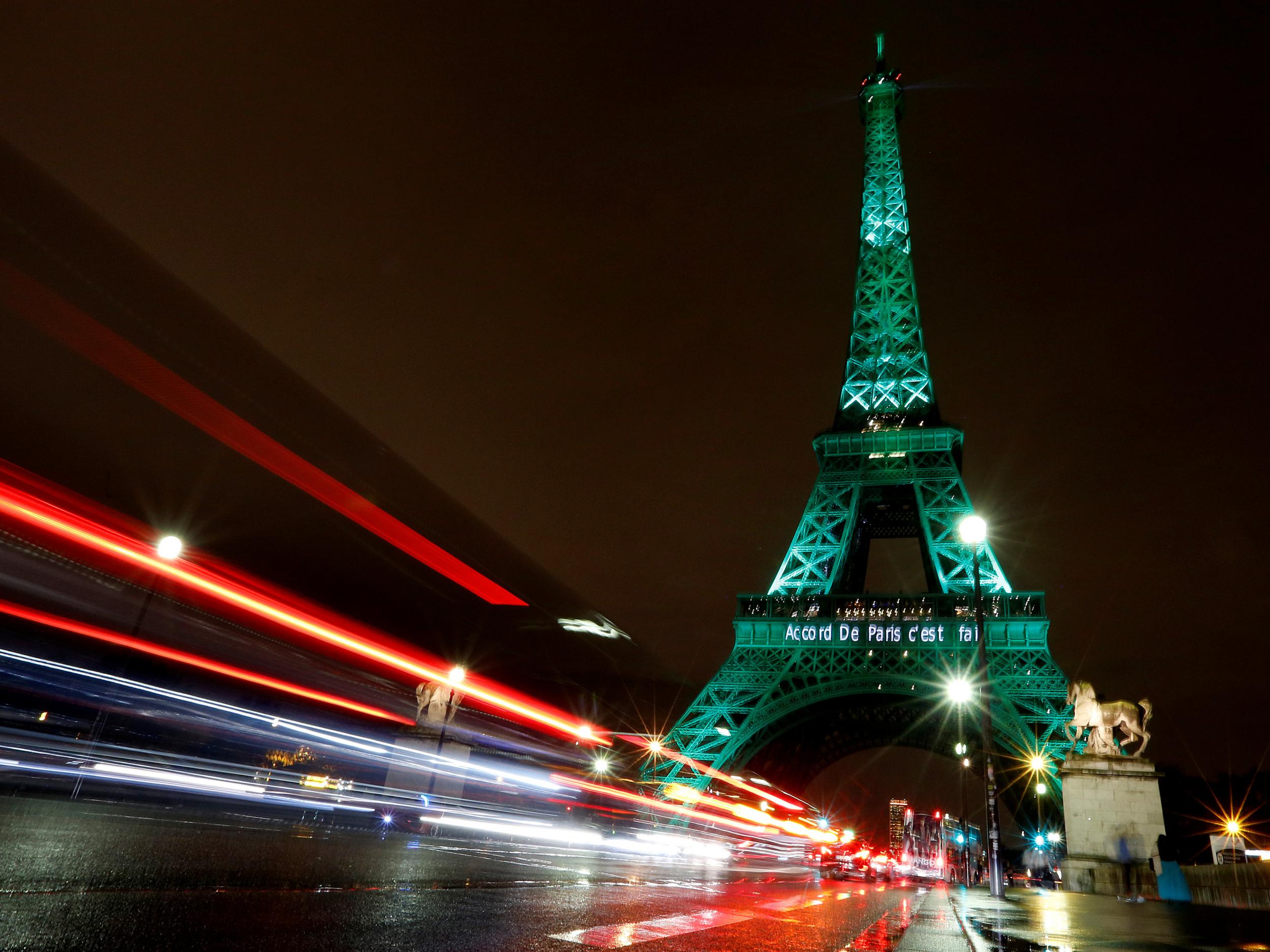‘Paris effect’ has led to ‘unexpected’ rapid shift towards low-carbon economy
Report finds building towards net zero could lead to 35 million new jobs globally by 2030

Your support helps us to tell the story
From reproductive rights to climate change to Big Tech, The Independent is on the ground when the story is developing. Whether it's investigating the financials of Elon Musk's pro-Trump PAC or producing our latest documentary, 'The A Word', which shines a light on the American women fighting for reproductive rights, we know how important it is to parse out the facts from the messaging.
At such a critical moment in US history, we need reporters on the ground. Your donation allows us to keep sending journalists to speak to both sides of the story.
The Independent is trusted by Americans across the entire political spectrum. And unlike many other quality news outlets, we choose not to lock Americans out of our reporting and analysis with paywalls. We believe quality journalism should be available to everyone, paid for by those who can afford it.
Your support makes all the difference.The “Paris effect” has led to an unexpectedly rapid shift towards a low-carbon economy, a new report says.
The plummeting price of renewable sources of electricity, such as solar and offshore wind, has made low-carbon power “cost-competitive” when compared to fossil fuels – at a greater speed than once thought possible, according to the report.
The rise of cheap renewable power means “zero-carbon solutions” are now competitive in a sector representing around 25 per cent of global emissions, the report says. This change has happened in just five years, it added.
Lord Nicholas Stern, chair of the Grantham Research Institute on Climate Change and the Environment at the London School of Economics and chair of Systemiq, the global consultancy behind the report, said: “Paris was a turning point. Many of us have been working on climate change for a very long time, but Paris has changed expectations. It was a major step for the world.
“The world saw China, Europe and the US recognising together that this was the big challenge of our time and identifying the route to go down.
“That was countries, but it is firms in particular that make innovations and investments. And it is firms that have been seeing where the future is, innovating and driving down the costs of the cleaner way of doing things.”
Since a deal for the Paris Agreement was reached five years ago, global greenhouse emissions have continued to rise. And a report released in 2017 found that, since the 1980s, just 100 companies have been the source of more than 70 per cent of the world’s greenhouse gas emissions.
However, there is a “growing awareness” in the business world of how adopting low-carbon solutions can be “cost effective”, said Lord Stern.
“Recognition of needing to reach net zero has given people a guiding path, a north star if you like,” he said. “That’s been a really important part of firms committing themselves. And as they have committed themselves, they have found out that being responsible goes along with good performance.”
The report estimates that, by 2030, zero-carbon solutions could become cost competitive in sectors representing more than 70 per cent of global emissions.
This is because the cost of zero-carbon solutions outside of the power sector are also set to fall throughout the 2020s, the report said.
For example, electric cars are set to become more cost competitive in the next few years. By 2024, electric cars could hit a “market tipping point” at which “they will have surpassed petrol and diesel cars in almost every car buyer purchase criterion: equal on upfront cost and range, a fraction of the cost to run and maintain, and better acceleration”, according to the report.
However, it is worth noting that there are some sectors of the economy where “zero-carbon solutions” are still far from being a reality, including aviation and red meat production.
Commenting on the new report, Laurence Tubiana, a key architect of the Paris Agreement, said: “It is clear the global long-term goal of Paris – net-zero greenhouse emissions by mid century – is now the reference point for governments and financial actors.
“World leaders started a journey in 2015 and now is the time to accelerate. We know global temperatures and emissions are rising but this assessment should give us hope that the Paris Agreement is working.”
The report comes a day after the UK’s independent climate advisers set out a world-first path for how the country could hit its net-zero target by 2050.
The Climate Change Committee (CCC) found that the UK could achieve its net-zero goal at a cost of less than 1 per cent of the country’s annual GDP over the next 30 years.
The affordability of hitting net zero is linked to falling renewable power prices, and the savings that could be made from cutting back on costly fossil fuels in the transport and housing sectors.


Join our commenting forum
Join thought-provoking conversations, follow other Independent readers and see their replies
Comments